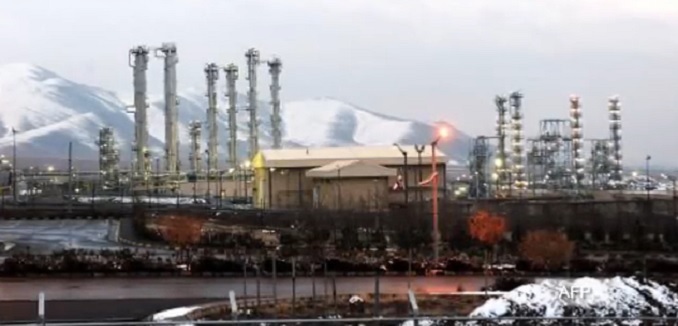The Wall Street Journal on Friday morning conveyed comments by former Obama administration advisers Robert Einhorn and Dennis Ross calling on the Obama administration and Congress – per the outlet – “to increase the threat of using military force against Tehran if talks aimed at curbing its nuclear program fail – or the country’s Islamist government is caught cheating on the terms of an agreement.”
The Journal noted that while the two are “both strong proponents of President Barack Obama‘s diplomacy with Iran,” existing and persistent gaps between the P5+1 global powers and Iran have reinforced diplomatic unease over whether negotiations can convince Tehran to verifiably put its atomic program beyond use for weaponization.
The comments came at the launch of a new paper – authored by Einhorn and released by the Brookings Institute, where Einhorn is a senior fellow – calling for a range of Congressional actions:
“The president would be required to report immediately to the Congress on the reasons for using military force, including evidence that Iran had violated the agreement and was moving toward the production of nuclear weapons,” Mr. Einhorn wrote in the nearly 50-page Brookings report.
Mr. Ross echoed his former colleague’s positions and called for the Obama administration to clearly state to Iran during the upcoming negotiations the ramifications for diplomacy failing in Vienna. Mr. Ross is a veteran diplomat and arms negotiator, and served as Mr. Obama’s point man on Iran in the National Security Council during the president’s first term.
Ross elaborated during the study’s [PDF] launch that “the Iranians must see the consequences, not just of cheating if there is an agreement, but the failure of diplomacy,” and that “the more we demonstrate resolve, including by talking about consequences of violations… the more we signal to the Iranians that we mean what we say… that will be key if we are to produce an agreement in the first place.”
Top Iranian officials have repeatedly emphasized that Tehran will refuse to dismantle nuclear centrifuges, downgrade its plutonium-producing Arak reactor, or make concessions regarding ballistic missile development. Western analysts – including Einhorn in his new report as well as U.S.-based Institute for Science and International Security head David Albright – have assessed that any robust agreement on Iran would have to include the dismantlement of tens of thousands of centrifuges, the modification of the Arak reactor, and at a minimum confidence-building measures on ballistic missiles.
[Photo: TomoNews US / YouTube]




